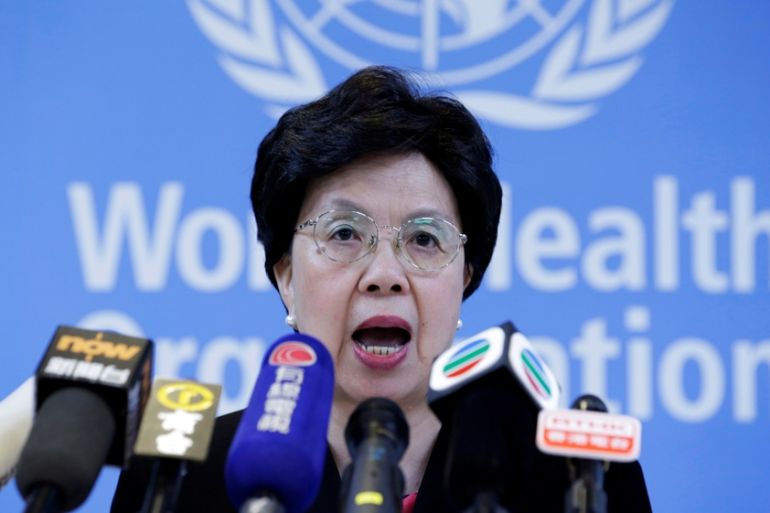WHO travel costs ‘outstrip’ disease budget
World Health Organization’s spending on travel exceeded its expenditure on public health problems, report says.

The World Health Organization spent about $200m in 2015 and 2016 on travel, a figure that far exceeds what it spends on public health problems such as AIDS, the Associated Press (AP) news agency has reported.
Citing internal documents, AP reported on Sunday that the UN health agency is struggling to reign in travel expenses even as it pleads for more money to fund its responses to global health crises.
Keep reading
list of 4 itemsWoman, seeking loan, wheels corpse into Brazilian bank
UK set to ban tobacco sales for a ‘smoke-free’ generation. Will it work?
Poland lawmakers take steps towards liberalising abortion laws
Despite introducing controls, members of staff have been breaking rules by booking business class plane tickets and rooms in five-star hotels, AP reported.
|
|
WHO Director-General Margaret Chan came under heavy criticism, with AP citing three unnamed sources who said she often travelled first class. She is reported to have spent $370,000 on travel in 2015.
The WHO has denied the allegations against Chan, saying she “strictly abides by WHO’s travel policies”.
“Travel is an essential aspect of WHO’s global health work – convening experts for collective decision-making on health interventions or travelling experts anywhere in the world that requires technical assistance for global health,” the WHO told Al Jazeera in a statement.
The WHO, which employs 7,000 people worldwide, said that less than half of its travel costs were on its staff.
Rules ignored
The UN allocates an annual budget of $2bn for the WHO.
In 2016, the agency spent $200m on travel while the figure was $234m in 2015, the year of the Ebola outbreak in west Africa, according to AP figures.
In comparison, the report said, WHO spent about $71m on AIDS and hepatitis last year. On malaria, it spent $61m, and to slow tuberculosis, it invested $59m.
An internal analysis, obtained by the news agency, found that only two of seven departments at WHO’s headoffice in Geneva met their targets, and concluded the compliance rate for booking travel in advance was between 28 and 59 percent.
READ MORE: Why is the world suffering from a penicillin shortage?
WHO’s transport costs were much higher than that of other comparable aid agencies, AP continued.
With 37,000 aid workers, Doctors Without Borders spends about $43m on travel per year, while the UN children’s agency UNICEF, which employs 13,000 people, said it spent $140m on global travel in 2016.
Experts who spoke to AP warned that WHO’s travel spending could have significant consequences for fundraising.
Dr Ashish Jha, the director of the Global Health Institute at Harvard University, said: “If WHO is not being as lean as possible, it’s going to be hard to remain credible when they make their next funding appeal.”
The organisation has asked for about $100m to save people in Somalia from an ongoing drought and requested $126m to stop the humanitarian crisis in Yemen.